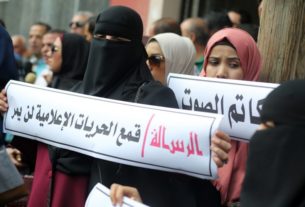SDEROT, Israel — Whenever Efraim Rozenfeld hears a plane flying overhead, his body tenses up.
The 52-year-old father of seven and grandfather of seven is a longtime resident of Sderot, the Israeli town near the Gaza border that is a regular target of Palestinian rocket attacks. Rozenfeld’s physical response to plane noise is the result, he says, of having normal life frequently interrupted by sirens, dashes to shelters and then breathless waiting to hear whether an incoming rocket barrage will strike nearby.
When the border zone is active during periods of violent escalation, these interruptions can happen dozens of times per day. The intensity, unpredictability, and violence take a heavy toll — not only in fatalities, injuries and property destruction but also in the form of mental and physical strain for the 70,000 or so Israelis who reside in the area adjacent to the Gaza Strip known as the Gaza envelope.
“It affects everyone here,” said Rozenfeld, who is originally from New York. “I feel the pressure on my body. Not just airplanes overhead — also sounds of a door slamming, a motorcycle revving, or a microphone being turned on affect me. Some people are more affected than others, but everyone here is affected. I once came to a house where the children would not leave the safe room, not even to brush their teeth.”
In recent years, Rozenfeld has found something that has helped calm him — and given him a way to provide therapeutic soothing to children suffering the same or worse symptoms of post-traumatic stress disorder: animal therapy. At the Sderot Animal-Assisted Therapy Center, where Rozenfeld has worked since its opening in 2016, serenity comes from seemingly unexpected sources: snakes, lizards, guinea pigs, birds and even cockroaches.
“Animals bring a lot of positive hormones that are calming and therapeutic,” said Rozenfeld, one of 10 animal-assisted therapists who work at the center. “More than that, animal therapy has many layers of applications. For example, instead of talking about their own feelings, children can talk about the animals, like: ‘The guinea pig is afraid.’ The child can speak through the animal.”
The animal center is one of an array of initiatives organized by the Israel Trauma Coalition, a network created in 2001 during the terrorist attacks of the second intifada, to help Israelis grappling with the traumas of conflict. UJA-Federation of New York was instrumental in the coalition’s creation and is an ongoing partner.
“Animals bring a lot of positive hormones that are calming and therapeutic,” says Efraim Rozenfeld, an animal-assisted therapist who works at the Sderot Animal-Assisted Therapy Center. (Elana Sztokman)
“We are living in an area that has been exposed to long-term trauma,” said Talia Levanon, CEO of the Israel Trauma Coalition, or ITC. “We needed a new approach.”
Today the national trauma treatment network brings together over 40 nongovernmental organizations working on trauma-related issues in Israel. Over the years, it has evolved into an internationally recognized leader in communal response to trauma.
“They are leaders in emergency preparedness and response and have played an important role in response to crises around the world, especially in the Jewish community,” said Ruthie Saragosti, who works as director of strategic planning at the Israel office of UJA-Federation. “We are proud to have not only launched this groundbreaking initiative, but to operate in such close ongoing partnership with ITC in this vital work.”
In Sderot, the animal therapy center aims to provide children with safe, comfortable and fun ways to work through their emotional responses to trauma.
“Working with animals is a way to reach the children very quickly,” Levanon said. “The rabbit trusts me to take care of him. It creates a dialogue around trust without having to say how you feel about your parents, your experiences or issues of vulnerability.”
The therapy center sees around 400 patients per month and is open from early morning until late at night. Through the animals, children can work on issues indirectly.
“Animals can often accomplish what human beings cannot,” Rozenfeld said. “Animals are not judgmental. A child who comes in with fears or who wets his bed or has anxieties — the animal doesn’t care about any of that. The animal accepts the person for who they are, as is.”
Certain animals at the center have specific functions. For example, the songbirds embody how living in captivity doesn’t have to mute apparent cheerfulness, and children are drawn to them. The large collection of reptiles helps children confront their fears.
“How do I deal with animals that are not liked or that are awkward or scary? That kind of interaction helps children name their fears,” Rozenfeld said. “It helps them speak about emotions and identify them and deal with them. They start to notice different experiences — such as fear, disgust, or anger — and to identify where they feel it on their body, and to allow them and accept these feelings as okay.”

Talia Levanon is the CEO of the Israel Trauma Coalition, a national trauma treatment network established during the terrorist attacks of the second intifada to help Israelis grappling with the traumas of conflict. (Elana Sztokman)
The center has become a resource for children dealing with many different kinds of trauma, not just terrorism and rocket fire, according to Levanon.
“For kids who are the most vulnerable, this can be the best venue,” she said.
The Israel Trauma Coalition has become adept at treating trauma of all sorts of kinds, including natural disasters, shootings and even the Covid pandemic. The coalition has 12 resilience centers around Israel and works with 160 local municipalities on emergency preparedness. The ITC created the model for emergency readiness with Israel’s Home Front Command, Ministry of Social Services, and the National Emergency Authority.
The ITC runs a national program with hospitals on trauma resilience, training multidisciplinary hospital teams to work with those exposed to traumatic events and create capacity in hospitals to respond to needs that may arise. The ITC also has specializations for different populations, including Holocaust survivors, Bedouins and Ethiopian Israelis.
“ITC is part of UJA’s network of on-the-ground nonprofits, helping build Israel’s resiliency even before a crisis hits,” said Itzik Shmuli, director general of UJA’s Israel office. “We’re meeting critical needs across the country, as we have for more than 75 years.”
Outside of Israel, teams from the ITC have gone to the sites of disasters in such places as Haiti, Houston, Japan, Mexico and France. After the deadly 2018 shooting at the Tree of Life synagogue in Pittsburgh, Levanon was one of the first Israeli trauma experts on the ground.
“We got to Pittsburgh when it was still an evolving event, before the funerals,” Levanon recalled. “The trauma was still happening. People were in complete shock. We trained the Jewish family services, the Federation and the Jewish Community Center, and the FBI.”
Levanon is herself a trained social worker specializing in bereavement; she served as a bereavement officer in the Israel Defense Forces during the Yom Kippur war. Under her leadership, the ITC has been recognized by the United Nations as an international adviser on communal trauma response.
“I’m very proud of what we’ve accomplished,” Levanon said. “We have a few workers who were clients as children and who are now working to support the center. We have some studying social work. I’m filled with awe and inspiration all the time.”




